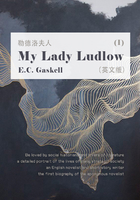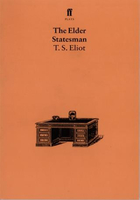The Persian Gulf
Now
Alif sat on the cement ledge of his bedroom window, basking in the sun of a hot September. The light was refracted by his lashes. When he looked through them, the world became a pixilated frieze of blue and white. Staring too long in this unfocused way caused a sharp pain in his forehead, and he would look down again, watching shadows bloom behind his eyelids. Near his foot lay a thin chrome-screened smartphone-pirated, though whether it came west from China or east from America he did not know. He didn't mess with phones. Another hack had set this one up for him, bypassing the encryption installed by whatever telecom giant monopolized its patent. It displayed the fourteen text messages he had sent to Intisar over the past two weeks, at a self-disciplined rate of one per day. All went unanswered.
He gazed at the smartphone through half-closed eyes. If he fell asleep, she would call. He would wake up with a jerk as the phone rang, sending it inadvertently over the ledge into the little courtyard below, forcing him to rush downstairs and search for it among the jasmine bushes. These small misfortunes might prevent a larger one: the possibility that she might not call at all.
"The law of entropy," he said to the phone. It glinted in the sun. Below him, the black-and-orange cat that had been hunting beetles in their courtyard for as long as he could remember came nipping across the baked ground, lifting her pink-soled paws high to cool them. When he called to her she gave an irritated warble and slunk beneath a jasmine bush.
"Too hot for cat or man," said Alif. He yawned and tasted metal. The air was thick and oily, like the exhalation of some great machine. It invaded rather than relieved the lungs and, in combination with the heat, produced an instinctive panic. Intisar once told him that the City hates her inhabitants and tries to suffocate them. She-for Intisar insisted the City was female-remembers a time when purer thoughts bred purer air: the reign of Sheikh Abdel Sabbour, who tried so valiantly to stave off the encroaching Europeans; the dawn of Jamat Al Basheera, the great university; and earlier, the summer courts of Pari-Nef, Onieri, Bes. She has had kinder names than the one she bears now. Islamized by a jinn-saint, or so the story goes, she sits at a crossroads between the earthly world and the Empty Quarter, the domain of ghouls and effrit who can take the shapes of beasts. If not for the blessings of the jinn-saint entombed beneath the mosque at Al Basheera, who heard the message of the Prophet and wept, the City might be as overrun with hidden folk as it is with tourists and oil men.
I almost think you believe that, Alif had said to Intisar.
Of course I believe it, said Intisar. The tomb is real enough. You can visit it on Fridays. The jinn-saint's turban is sitting right on top.
Sunlight began to fail in the west, across the ribbon of desert beyond the New Quarter. Alif pocketed his phone and slid off the window ledge, back into his room. Once it was dark, perhaps, he would try again to reach her. Intisar had always preferred to meet at night. Society didn't mind if you broke the rules; it only required you to acknowledge them. Meeting after dark showed a presence of mind. It suggested that you knew what you were doing went against the prevailing custom and had taken pains to avoid being caught. Intisar, noble and troubling, with her black hair and her dove-low voice, was worthy of this much discretion.
Alif understood her desire for secrecy. He had spent so much time cloaked behind his screen name, a mere letter of the alphabet, that he no longer thought of himself as anything but an alif-a straight line, a wall. His given name fell flat in his ears now. The act of concealment had become more powerful than what it concealed. Knowing this, he had entertained Intisar's need to keep their relationship a secret long after he himself had tired of the effort. If clandestine meetings fanned her love, so be it. He could wait another hour or two.
The tart smell of rasam and rice drifted up through the open window. He would go down to the kitchen and eat-he had eaten nothing since breakfast. A knock on the other side of the wall, just behind his Robert Smith poster, stopped him on his way out the door. He bit his lip in frustration. Perhaps he could slip by undetected. But the knock was followed by a precise little series of taps: p'~ She had heard him get down from the window. Sighing, Alif rapped twice on Robert Smith's grainy black-and-white knee.
Dina was already on the roof when he got there. She faced the sea, or what would be the sea if it were visible through the tangle of apartment buildings to the east.
"What do you want?" Alif asked.
She turned and tilted her head, brows contracting in the slim vent of her face-veil.
"To return your book," she said. "What's wrong with you?"
"Nothing." He made an irritated gesture. "Give me the book then."
Dina reached into her robe and drew out a battered copy of The Golden Compass. "Aren't you going to ask me what I thought?" she demanded.
"I don't care. The English was probably too difficult for you."
"It was no such thing. I understood every word. This book"- she waved it in the air-"is full of pagan images. It's dangerous."
"Don't be ignorant. They're metaphors. I told you you wouldn't understand."
"Metaphors are dangerous. Calling something by a false name changes it, and metaphor is just a fancy way of calling something by a false name."
Alif snatched the book from her hand. There was a hiss of fabric as Dina tucked her chin, eyes disappearing beneath her lashes. Though he had not seen her face in nearly ten years, Alif knew she was pouting.
"I'm sorry," he said, pressing the book to his chest. "I'm not feeling well today."
Dina was silent. Alif looked impatiently over her shoulder: he could see a section of the Old Quarter glimmering on a rise beyond the shoddy collection of residential neighborhoods around them. Intisar was somewhere within it, like a pearl embedded in one of the ancient mollusks the ghataseen sought along the beaches that kissed its walls. Perhaps she was working on her senior thesis, poring over books of early Islamic literature; perhaps she was taking a swim in the sandstone pool in the courtyard of her father's villa. Perhaps she was thinking of him.
"I wasn't going to say anything," said Dina.
Alif blinked. "Say anything about what?" he asked.
"Our maid overheard the neighbors talking in the souk yesterday. They said your mother is still secretly a Hindu. They claim they saw her buying puja candles from that shop in Nasser Street."
Alif stared at her, muscles working in his jaw. Abruptly he turned and walked across the dusty rooftop, past their satellite dishes and potted plants, and did not stop when Dina called him by his given name.
* * *
In the kitchen, his mother stood side by side with their maid, chopping green onions. Sweat stood out where the salwar kameez she wore exposed the first few vertebrae of her back.
"Mama." Alif touched her shoulder.
"What is it, makan?" Her knife did not pause as she spoke.
"Do you need anything?"
"What a question. Have you eaten?"
Alif sat at their small kitchen table and watched as the maid wordlessly set a plate of food in front of him.
"Was that Dina you were talking to on the roof?" his mother asked, scraping the mound of onions into a bowl.
"So?"
"You shouldn't. Her parents will be wanting to marry her off soon. Good families won't like to hear she's been hanging around with a strange boy."
Alif made a face. "Who's strange? We've been living in the same stupid duplex since we were kids. She used to play in my room."
"When you were five years old! She's a woman now."
"She probably still has the same big nose."
"Don't be cruel, makan-jan. It's unattractive."
Alif pushed the food around on his place. "I could look like Amr Diab and it wouldn't matter," he muttered.
His mother turned to look at him, a frown distorting her round face. "Really, such a childish attitude. If you would only settle down into a real career and save some money, there are thousands of lovely Indian girls who would be honored to-"
"But not Arab girls."
The maid sucked her teeth derisively.
"What's so special about Arab girls?" his mother asked. "They give themselves airs and walk around with their eyes painted up like cabaret dancers, but they're nothing without their money. Not beautiful, not clever, and not one of them can cook-"
"I don't want a cook!" Alif pushed his chair back. "I'm going upstairs."
"Good! Take your plate with you."
Alif jerked his plate off the table, sending the fork skittering to the floor. He stepped over the maid as she bent to pick it up.
Back in his room, he examined himself in the mirror. Indian and Arab blood had merged pleasantly on his face, at least. His skin was an even bronze color. His eyes took after the Bedouin side of his family, his mouth the Dravidian; all in all he was at peace with his chin. Yes, pleasant enough, but he would never pass for a full-blooded Arab. Nothing less than full-blood, inherited from a millennium of sheikhs and emirs, was enough for Intisar.
"A real career," Alif said to his reflection, echoing his mother. In the mirror he saw his computer monitor flicker to life. He frowned, watching as a readout began to scroll up the screen, tracking the IP address and usage statistics of whoever was attempting to break through his encryption software. "Who's come poking around my house? Naughty naughty." He sat at his desk and studied the flat screen-almost new, flawless aside from a tiny crack he had repaired himself; bought for cheap from Abdullah at Radio Sheikh. The intruder's IP address came from a server in Winnipeg and this was his first attempt to break into Alif's operating system. Curiosity, then. In all likelihood the prowler was a gray hat like himself. After testing Alif's defenses for two minutes he gave up, but not before executing Pony Express, a trojan Alif had hidden in what looked like an encryption glitch. If he was half good, the intruder likely ran specialized anti-malware programs several times a day, but with any luck Alif would have a few hours to track his Internet browsing habits.
Alif turned on a small electric fan near his foot and aimed it at the computer tower. The CPU had been running hot; last week he'd come close to melting the motherboard. He could not afford to be lax. Even a day offline might endanger his more notorious clients. The Saudis had been after Jahil69 for years, furious that his amateur erotica site was impossible to block and had more daily visitors than any other Web service in the Kingdom. In Turkey, TrueMartyr and Umar_Online fomented Islamic revolution from a location the authorities in Ankara found difficult to pinpoint. Alif was not an ideologue; as far as he was concerned, anyone who could pay for his protection was entitled to it.
It was the censors who made him grind his teeth as he slept, the censors who smothered all enterprise, whether saintly or cynical. Half the world lived under their digital cloud of ones and zeroes, denied free access to the economy of information. Alif and his friends read the complaints of their coddled American and British counterparts-activists, all talk, irritated by some new piece of digital monitoring legislation or another-and laughed. Ignorant monoglots, Abdullah called them when he was in the mood to speak English. They had no idea what it was like to operate in the City, or any city that did not come prewrapped in sanitary postal codes and tidy laws. They had no idea what it was like to live in a place that boasted one of the most sophisticated digital policing systems in the world, but no proper mail service. Emirates with princes in silver-plated cars and districts with no running water. An Internet where every blog, every chat room, every forum is monitored for illegal expressions of distress and discontent.
Their day will come, Abdullah had told him once. They had been smoking a well-packed hookah on the back stoop of Radio Sheikh, watching a couple of feral cats breed on a garbage heap. They will wake up one morning and realize their civilization has been pulled out from under them, inch by inch, dollar by dollar, just as ours was. They will know what it is to have been asleep for the most important century of their history.
That doesn't help us, Alif had said.
No, said Abdullah, but it certainly makes me feel better.
Meanwhile they had their local nightmares to occupy them. In university, frustrated by the gaps in a computer science curriculum taught by the very State servants who policed the digital landscape, Alif had weaned himself on spite. He would teach himself what they wouldn't. He would help inundate their servers with sex videos or bring the soldiers of God down on their heads-it did not matter which came first. Better chaos than slow suffocation.
Only five years ago-less-the censors had been sluggish, relying on social media sites and old-fashioned detective work to track their marks. Gradually they had been endowed with some unholy knowledge. Chatter began on countless mainframes: who had tutored them? The CIA? Mossad was more likely; the CIA was not bright enough to choose such a subtle means of demoralizing the digital peasantry. They were united by no creed, these censors; they were Ba'ath in Syria, secular in Tunisia, Salafi in Saudi Arabia. Yet their methods were as identical as their goals were disparate. Discover, dismantle, subdue.
In the City, the increase in Internet policing appeared as a bizarre singularity. It moved over the weblogs and forums of the disaffected like a fog, appearing sometimes as code glitch or a server malfunction, sometimes as a sudden drop in connection speeds. It took months for Alif and the other City gray hats to connect these ordinary-seeming events. Meanwhile, the Web hosting accounts of some of the City's finest malcontents were discovered and hacked-presumably by the government-leaving them unable to access their own Web sites. Before he left the digital ecosystem for good, NewQuarter01, the City's first blogger, named the singularity the Hand of God. Debate still raged about its identity: was it a program, a person, many people? Some postulated that the Hand was the emir himself-hadn't it always been said that His Highness was schooled in national security by the Chinese, authors of the Golden Shield? Whatever its origin, Alif foresaw disaster in this new wave of regional monitoring. Hacked accounts were only the first step. Inevitably, the censors would move on to hack lives.
Like all things, like civilization itself, the arrests began in Egypt. In the weeks leading up to the Revolution, the digital stratosphere became a war zone. The bloggers who used free software platforms were most vulnerable; Alif was neither surprised nor impressed when they were found and imprisoned. Then the more enterprising geeks, the ones who coded their own sites, began to disappear. When the violence spilled off the Internet and into the streets, making the broad avenues of Tahrir Square a killing field, Alif dumped his Egyptian clientele without ceremony. It was clear the regime in Cairo had outstripped his ability to digitally conceal its dissidents. Cut off the arm to save the body, he told himself. If the name Alif was leaked to an ambitious State security official, a coterie of bloggers, pornographers, Islamists, and activists from Palestine to Pakistan would be put at risk. It was not his own skin he was worried about, of course, though he didn't take a solid shit for a week afterward. Of course it was not his own skin.
Then on Al Jazeera he watched as friends known to him only by alias were taken to jail, victims of the regime's last death throes. They had faces, always different than the ones he imagined, older or younger or startlingly pale, bearded, laugh-lined. One was even a girl. She would probably be raped in her prison cell. She was probably a virgin, and she would probably be raped.
Cut off the arm.
Alif's fingers glided over the keyboard. "Metaphors," he said. He typed it in English. Dina was right as usual.
It was for this reason that Alif had taken no pleasure in the success of the Egyptian revolution, or in the wave of uprisings that followed. The triumphs of his faceless colleagues, who had crashed system after system in government after government, served only to remind him of his own cowardice. The City, once one tyrannical emirate among many, began to feel as though it were outside time: a memory of an old order, or a dream from which its inhabitants had failed to wake. Alif and his friends fought on, chipping away at the digital fortress the Hand had erected to protect the emir's rotting government. But an aura of failure clung to their efforts. History had left them behind.
A flicker of green out of the corner of his eye: Intisar was online. Alif let out a breath and felt his guts working.
A1if: Why haven't you answered my e-mails?
Bab_elDunya: Please leave me alone
His palms began to sweat.
A1if: Have I offended you?
Bab_elDunya: No
A1if: What is it then?
Bab_elDunya: Alif, Alif
A1if: I'm going crazy, tell me what's wrong
A1if: Let me see you
A1if: Please
For a leaden minute she wrote nothing. Alif leaned his forehead against the edge of his desk, waiting for the ping that would tell him she had responded.
Bab_elDunya: At the place in twenty minutes
Alif stumbled out the door.
* * *
He took a taxi to the farthest edge of the Old Quarter wall and then got out to walk. The wall was thronged with tourists. Sunset turned its translucent stones brilliant pink, a phenomenon they would try imperfectly to capture with their mobile phones and digital cameras. Souvenir hawkers and tea shops crowded the street that ran alongside. Alif pushed his way past a group of Japanese women in identical
T-shirts. Someone nearby stank of beer. He bit back a cry of frustration as his path was blocked by a tall desi guide carrying a flag.
"Please to look left! Hundred year ago, this wall surrounded entire city. Tourist then came not by plane but by camel! Imagine to come across the desert, then suddenly-the sea! And on the sea, city surrounded by wall of quartz, like mirage. They thought was mirage!"
"Pardon me, brother," Alif said in Urdu, "but I am not a mirage. Let me through."
The guide stared at him. "We all come here to make a living, brother," he said, curling his lip. "Don't frighten the money."
"I didn't come here. I was born here."
"Masha'Allah! Pardon me." He splayed his legs. The tour group gathered behind him instinctively, like chicks behind a hen. Alif stared past them down the street. He could almost see the corrugated roof of the tea shop where Intisar would be waiting.
"No one cares if a few fat Victorians came across the desert to look at a wall," he blurted. "They're dead now. We've got plenty of live Europeans out in the oil fields at the TransAtlas facility. Give them a tour of that."
The guide grimaced. "You're crazy, bhai," he muttered. He stood aside, holding his brood back with one arm. Alif had invoked a class bond more subtle than commerce. Pressing a hand to his heart in thanks, Alif hurried past.
The tea shop was neither attractive nor memorable. It was decorated with a smudged acrylic mural of the New Quarter's famous skyline, and the owner-a Malay who spoke no Arabic-served "authentic" hibiscus drinks that had gone out of fashion several decades earlier. No native of the City would step foot in such a simulacrum. It was for this reason Alif and Intisar had chosen the place. When Alif arrived, Intisar was standing in the corner with her back to the room, examining a rack of dusty postcards. Alif felt the blood rush to his head.
"As-salaamu alaykum," he said. She turned, jet beads clinking softly in the hem of her veil. Large black eyes regarded him.
"I'm sorry," she whispered.
He crossed the room in three steps and took her gloved hand. The Malay busied himself at a wash basin in the far corner, head down; Alif wondered if Intisar had given him money.
"For God's sake," he said, breath unsteady. "What's happened?"
She dropped her eyes. Alif ran his thumb across her satin palm and felt her shiver. He wanted to tear the veil away and read her face, inscrutable behind its wall of black crepe. He could still remember the scent of her neck-it had not been so long ago. To be separated by so much cloth was unbearable.
"I couldn't stop it," she said. "It was all settled without me. I tried, Alif, I swear to you I tried everything-I told my father I wanted to finish university first, or travel, but he just looked at me as if I'd gone crazy. It's a friend of his. Putting him off would be an insult-"
Alif stopped breathing. Taking her wrist, he began to strip off the glove, ignoring her halfhearted struggle. He revealed her pale fingers: an engagement ring glittered between them like a stone dropped on uneven ground. He began breathing again.
"No," he said. "No. You can't. He can't. We'll leave-we'll go to Turkey. We don't need your father's consent to get married there. Intisar-"
She was shaking her head. "My father would find a way to ruin you."
To Alif's horror he felt tears spring up in his eyes. "You can't marry this chode," he said hoarsely. "You're my wife in the eyes of God if no one else."
Intisar laughed. "We signed a piece of paper you printed from your computer," she said. "It was silliness. No state would recognize it."
"The shayukh do. Religion does!"
The Malay shifted, looking over his shoulder. Without speaking, Intisar pulled Alif into the back room and shut the door.
"Do not shout," she hissed. "You'll cause a scandal."
"This is a scandal."
"Don't be so dramatic."
"Don't patronize me." Alif curled his lip. "How much do you pay that Malay? He's very accommodating."
"Stop it." Intisar lifted her veil. "I don't want to fight with you." A wisp of hair clung to her jaw; Alif brushed it aside before bending to kiss her. He tasted lips, teeth, tongue; she withdrew.
"It's too late for this," she murmured.
"No, it's not. I'll protect you. Come to me and I'll protect you."
One plush lip quivered. "You're such a boy," said Intisar. "This isn't a game. Someone could get hurt."
Alif slammed his fist against the wall and Intisar shrieked. For a moment they stared at each other. The Malay began pounding on the other side of the door.
"Tell me his name," Alif demanded.
"No."
"Your mother's cunt! Tell me his name."
The color seeped from Intisar's face. "Abbas," she said. "Abbas Al Shehab."
"Abbas the Meteor? What a stupid, stupid name. I'll kill him-I'll run him through with a sword made of his own bones-"
"Don't talk like something out of a comic book. You don't know what you're saying." She shoved past him and opened the door. The Malay began shouting in an incomprehensible dialect. Ignoring him, Alif followed Intisar out through the tea shop. She was crying.
"Go home, Alif," she quavered, jerking her veil back over her face. "Make it so I never see your name again. Please, God, please-I can't stand it."
He tangled his legs between a table and chair and stumbled. Intisar disappeared into the twilight, a black omen against the fading air.















